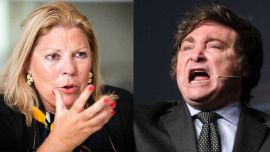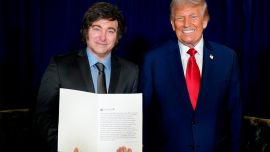The UK government will extend the country’s lockdown by at least three more weeks in an effort to stem the spread of coronavirus.
Foreign Secretary Dominic Raab, who is standing in for Boris Johnson while the prime minister recovers from his own infection with the virus, said the March 23 decision to close most shops and meeting places and limit all but essential travel has helped to slow the spread of Covid-19 – but the rate of infection hasn’t yet fallen far enough.
“Relaxing any of the measures in place would damage both public health and the economy,” he said at a televised briefing from Downing Street on Thursday. “The worst thing we could do right now is ease up too soon and allow a second peak of the virus.”
The government is trying to balance the economic damage the lockdown is causing with a death toll that is increasing daily. Other European countries such as Germany and Denmark that imposed restrictions before the UK have announced plans to ease them, putting the government under pressure to outline its own plans for relaxing them. But as recently as this morning, Health Secretary Matt Hancock had warned even discussing any exit strategy.
Raab said the UK won’t lift its restrictions, which are now set to last until May 7, until five tests are met. They are:
- The National Health Service should be able to cope with the demands on it
- A “sustained and consistent” daily fall in deaths
- The infection rate should be decreasing
- Shortages of protective equipment and tests should have been solved
- There should be no risk of a second peak in infection
Chief Scientific Adviser Patrick Vallance said that as restrictions are lifted, the aim wouldn’t be to segregate certain groups in society, but would instead be to try to move everything back toward normal at the same time.
Public Backing
So far, the lockdown has received overwhelming public support: 91 percent of Britons said they support a three-week extension, according to a YouGov poll of 3,430 people.
The restrictions have been accompanied by unprecedented government support for businesses, with the goal that they should keep staff employed and be able to reopen swiftly. But it risks provoking the largest recession the UK has seen in decades: the economy could shrink by 35 percent , according to estimates by the Office for Budget Responsibility.
“Early relaxation would do more damage to the economy over a longer period,” Raab warned.
Vallance said the view of government experts was that each infected person was now passing on the disease to fewer than one other person.
“It’s likely that the virus and the epidemic is now shrinking,” he said. He said he expects the number of people dying each day to rise and then plateau.
Testing
Earlier, Neil Ferguson, an epidemiologist at Imperial College London who advises the government on its response to the pandemic, urged the government to set out its exit strategy.
“If we want to reopen schools and get people back to work, we need a way of keeping transmission down in another manner,” Ferguson told BBC Radio 4, pointing to measures countries including South Korea have put in place to isolate Covid-19 cases and trace people they have been in contact with.
The UK government has faced criticism over its failure to ramp up testing for the coronavirus, where it trails countries like Germany.
Chief Medical Officer Chris Whitty indicated the government may be about to shift its position on how effective face masks are at restricting the spread of the disease. In Britain, the government doesn’t require people to wear them in public.
“It’s a very live issue, which we’re re-examining,” he said. “The evidence is weak, but the evidence of a small effect is there under certain circumstances.”
by Robert Hutton and Olivia Konotey-Ahulu, Bloomberg


















Comments